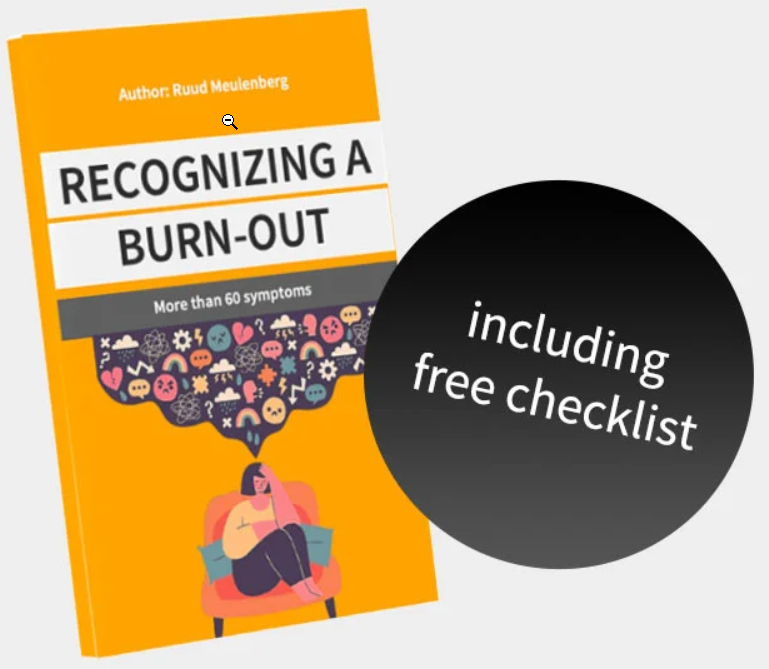This article will discuss chronic Stress, how you can identify it, and its severe impact on the human immune system. We will also discuss ways to manage Stress, including lifestyle therapies and when to see a doctor. First, it’s essential to understand what stress is.
What is Chronic Stress?
We have all felt Stress. Stress can be situational or a positive force encouraging you to perform well at a job interview or piano recital. But if you experience Stress over a long period, it can become chronic Stress. Stress can negatively impact the immune system and overall well-being.
Chronic Stress lasts weeks or months. It is the kind of Stress that can interfere with your ability to live everyday life. The longer the Stress lasts, the more detrimental it is to your body and mind. For instance, you might be unable to concentrate and feel tired and irritable for no good reason.
Many factors can cause chronic Stress. Some of them include the following:
- Financial difficulties
- Challenging affairs
- High-pressure jobs
Chronic Stress can lead to several symptoms and increase the chances of developing certain conditions. For instance, job strain demands, and financial difficulties are associated with an increased risk of coronary disease.
How Does Stress Affect a Person?
A person’s life may be stressful from external circumstances, such as work or family, and the internal state of mind. Chronic Stress can influence your thought processes and behaviour.
People under chronic Stress and who experience stressful thoughts, have higher levels of Cortisol, which is a hormone that causes your body to stay ready for emergencies. Cortisol is an essential nutrient for your immune system, and, as cortisol levels are increased, levels of pantothenic acid decrease.

Stress can cause adverse health problems you may have been unaware of because they could be causing your symptoms. They can lead to stressors. Stressors are the forms of Stress that make a person stressed out. These stressors can be anything that might cause tension, such as a demanding boss or trying to pay bills. Stressors may also be physical stimuli such as pain, illness, and injury. Other typical stressors are financial worries and overwork.
Common effects of Stress on your body include:
- Change in sex drive
- Fatigue
- Sleep difficulties
- Chest pain
- Headache
- Muscle tension
Typical effects on your mood include:
- Restlessness
- Anxiety
- Feeling overwhelmed
- Sadness
Common effects of Stress on human behaviour are:
- Angry outbursts
- Drug abuse
- Social withdrawal
- Overeating or undereating
- Exercise less often
What Is The Immune System?
To understand how Stress affects the immune system, first, you must know some basics about the immune system.
Your immune system is a collection of cells and proteins that protect your body from infectious diseases and other foreign substances. The system keeps track of all microbes [1] it has battled so it can identify and damage them if they enter the body again.
What Happens When Your Immune System Gets Stressed Out?
The stress response is a normal reaction you experience daily. When you get stressed, your body releases hormones such as cortisol, adrenaline, and other chemicals. The brain signals the activation of the sympathetic nervous system, which is responsible for the fight or flight response. Heart rate rises, blood pressure increases, and other systems prepare your body to either run away from a problem or stand up to it.
Stress, over time, can trigger changes in some people’s immune cells, leaving them more vulnerable to illness and infections. These cells, known as T lymphocytes, are the body’s first line of defence against infection, and would usually safeguard you from viruses and bacteria.

Download our
free e-book
Recognizing a burnout
(more than 60 symptoms)
However, stressful life events like a divorce or the death of a loved one can cause changes in these cells. This leaves the person more vulnerable to illness and infection.
The immune system also controls weight gain and weight loss. When people are stressed, they tend to eat more food and burn less fat. As you become stressed, your body releases hormones controlling fat storage and burning.
Chronic Stress can cause short-term and long-term changes in how you function. Signs of a stressed immune system include:
- Burnout or overwhelm
- Depression
- Anxiety
- Panic attacks
- Muscle tension that makes it hard for you to relax
- Insomnia
- Sleep Problems
Ways to Manage Chronic Stress
Here are some ways to battle chronic Stress for better mental well-being and overall health:
Talk to Your Family and Friends
A great way to relieve chronic Stress is to seek support. The support of friends and family can give you a boost of reassurance, relief, and motivation. If you feel overwhelmed, talk to someone you trust about your worries.
Identify Signs and Symptoms
Ensure to monitor your state of mind daily. If you feel stressed, take note of the cause, your mood, and your thoughts. After realizing what is bothering you, devise a plan to address it. That means setting reasonable expectations, assignments, and other responsibilities. Write down all your commitments, evaluate your priorities and remove any tasks that are not crucial.
Regular Exercise
Exercising at least thirty minutes a day can help combat chronic disease. Exercise can also increase the production of endorphins, a chemical responsible for boosting mood and reducing Stress. Physical activities may include jogging, walking, cycling, yoga, workouts, or playing your favourite sports.
Improve Sleep Quality
If you are feeling burnt-out, you will be more stressed and unable to cope with your stressors. A good night’s sleep will help you re-energize your body, mind, and spirit by allowing your body to repair itself during rest.
Meditation
Regular meditation can help achieve inner peace, clarity, and strength. It also relaxes the body and reduces anxiety by freeing your mind from worry. It is also a way to provide support and care for yourself.
Create Time for Relationships
When experiencing chronic Stress, you may feel the urge to avoid socializing. But this is a better time to reach out to the people you love most. It is crucial to stay in sync during stressful times.

Find a way to create time for friends, family, and relationships, as they can help you cope with life problems. Fix dates, attend an online gathering, or give a family a video call.
Laugh Often
Find ways to laugh more often and cultivate a sense of humour. Laughter is a natural way to ease pain and increase your ability to cope with Stress.
Eat Well
You eat how you feel. If you are stressed out, your diet will reflect that. If your stress results from a hectic lifestyle, you should change your diet.
Seek Professional Help
If you feel stressed and nothing seems to help, seek help from a Stress Coach, Counsellor, or Therapist. Professional help will help you better understand what is causing you to feel stressed and make a change for the better.
Can we help you?
Leave us your information and one of our coaches will contact you in 24H

Which Behaviours Should I Change to Avoid Ongoing Stress?
During stressful times, one of the noticeable symptoms is your behaviour. These include forgetting what you are doing, walking around quickly, having angry outbursts, and more. Here are some coping skills to help you mitigate the Stress in your behaviour:
Listen To Music
Listen to music that makes you feel relaxed and helps you feel better. Music has a way of helping the body relax and relieve Stress.
Avoid Overcommitting Yourself
Another way to manage chronic Stress is to avoid over-committing yourself. Chronic Stress usually results from overworking and the inability to meet the deadlines you have created for yourself.
Walk Away From a Heated Situation
If you find yourself in a difficult situation, walk away before it worsens. Sometimes, the best way to deal with a stressful situation is to avoid it entirely.
How Will I Know My Immune System Is No Longer Stressed?
There are plenty of signs that your immune system is no longer stressed. Some of them include the following:
Better Sleep
Not only will you enjoy quality sleep during the night, but you should also wake up in the morning feeling well-rested.

A “Pulse” Of Energy in Your Body
Your body will move more easily without Stress. These include elimination of fatigue or muscle pain, dizziness, or anxiety.
You Regulate Your Emotions Well
Your immune system is healthy when you make better decisions, free yourself from past emotions, and feel more connected with others.
You Feel Alert
It’s perfectly normal to get tired. But it shouldn’t occur constantly. One of the tell-tale signs your immune is thriving is a sense of alertness throughout the day.
Where Can I Get Help to Recover from Chronic Stress?
Do not handle chronic Stress alone. If lifestyle and self-help ways are not working, seek attention from a qualified doctor. You can also seek professional counselling from a more specialized healthcare provider, including a Coach, Psychiatrist or Psychologist. Remember, the earlier you seek help, the sooner you recover.
FAQs
References
- ncbi.gov – What are microbes? – 10/01/2023
Link to page on ncbi.gov






